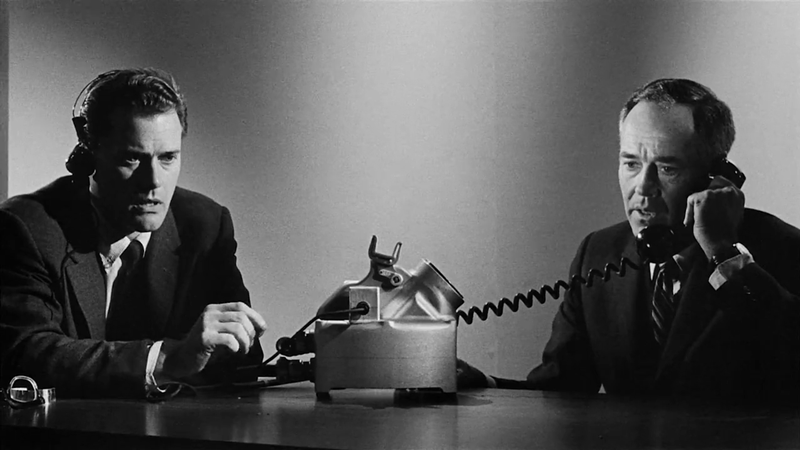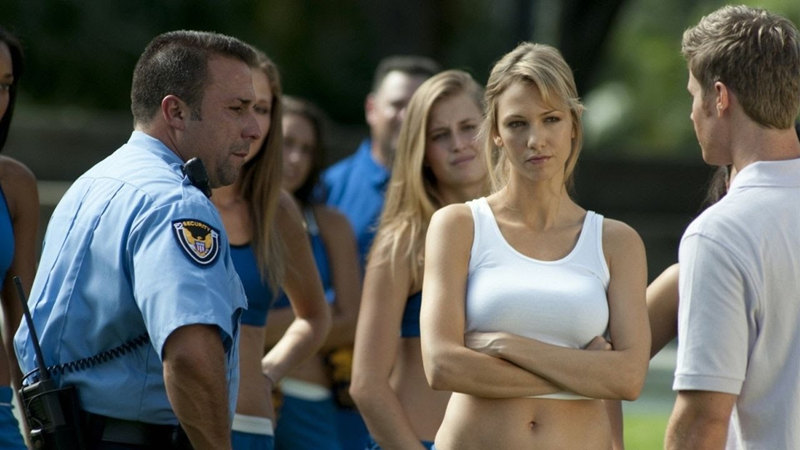“Make a joyful noise unto the LORD, all the earth: make a loud noise, and rejoice, and sing praise.
Sing unto the LORD with the harp; with the harp, and the voice of a psalm.
With trumpets and sound of cornet make a joyful noise before the LORD, the King.”
–Psalm 98, The Holy Bible, King James Version
I can’t help thinking that the success of the TV show “Glee” had something to do with the 2012 musical-comedy drama “Joyful Noise.” Who knows.
If you’ve seen the trailer for this one, which I did, you pretty much know everything that’s going to happen in the movie. Queen Latifah and Dolly Parton are no doubt good entertainers in their own right and have a legion of followers, but did anyone really think they could sustain an entire movie on their own? Apparently, someone did. Who knows.
What the movie’s got going for it is a whole lot of good gospel songs sung by highly accomplished singers. What it doesn’t have is any kind of compelling story to hang the music on. Maybe a few believable characters might have helped, too. Who knows.
As it is, the plot and characters are hackneyed from beginning to end. First of all, it’s about a choir competition. OK, I know that choir competitions are big business around the country, but let’s face it: They don’t exactly raise the adrenaline levels the way football games do or basketball or soccer or boxing or wrestling or horse racing or running or drumming or cheerleading or tiddly winks. So if you’re waiting anxiously to see how the big choir competition turns out in the end, the movie will probably disappoint you.
For me, the entire movie was a disappointment, although as I suggested above, it shouldn’t have disappointed me since I knew most of what was going to happen by watching the trailer.
The setting is the present in a small, rural town in Georgia, a fictional town named Pacashau that fell upon bad times during the country’s economic downturn, businesses closing and the townsfolk feeling mightily depressed and all. But they do have one thing that uplifts them: the church choir, which makes it to the national semifinals every year, even if it never wins.
This year, however, is different: The choirmaster, Bernard Sparrow (Kris Kristofferson), dies. Yes, poor Kristofferson–his character passes away in the very first scene of the movie. The question of who is to take his place falls to the church’s preacher, Pastor Dale (Courtney Vance), who chooses Vi Rose Hill (Queen Latifah) to continue the choir’s tradition of excellence. This slightly annoys the deceased choir director’s widow, G.G. Sparrow (Dolly Parton), who figures the job should have been hers.
Anyway, the characters Latifah and Parton play are the stars of the picture, the two arguing with one another constantly and contesting the choir’s direction for the rest of the story. Latifah is a fine actress and makes her character vibrant and alive, her Vi Rose character wanting to maintain the choir’s traditional, old-fashioned approach to music. Parton is not so great an actress, and her character comes off more as a caricature than a living, breathing person. Parton’s G.G. wants the choir to be more upbeat and hip, more in tune with the times. You can see the conflict between the characters and how it’s going to turn out.
But the discord between Vi Rose and G.G. is not enough to carry the movie, not even one in which a musical number turns up every couple of minutes. So the film’s writer and director, Todd Graff (“Camp,” “Bandslam”), fills in the empty space with a subplot involving Vi Rose’s sixteen-year-old daughter, Olivia (Keke Palmer), and G.G.’s grandson, Randy (Jeremy Jordan). Do I really have to tell you that Olivia and Randy almost instantly fall in love? Or that the overly protective Vi Rose disapproves?
The problem Graff faces is in trying to make all of this credible, and it’s here he fails considerably. G.G., as I say, is a caricature, an exaggeration, and never plausible for a minute. Vi Rose is more approachable, but there are so many unlikely circumstances swirling around her, we can’t accept her any more than we can accept G.G. as a real person. Not only do we find Vi Rose estranged from her husband, who has left her by re-enlisting in the army and is about to go oversees, but Vi Rose’s beautiful, talented daughter Olivia is slightly rebellious and in love; and Vi Rose’s son, Walter (Dexter Darden), is shy, introverted, and unhappy, without a friend in the world. I call it piling on. Then, we see that G.G.’s grandson (remember Randy?), whom the movie tells us is also rebellious and something of a troublemaker and whose parents just kicked him out of the house, also coincidentally happens to be a superb singer and pianist, and a wise, compassionate, understanding human being to boot. What are the odds?
Moreover, the little town of Pacashau just happens to be the most racially well integrated community in the Deep South, with an equal number of blacks and whites living harmoniously with one another, all going to the same church, along with an unlikely contingent of Asians. Everyone loves one another here, with never a hint of discord. It’s a beautiful sentiment, and one I’m sure we all desire. But it’s also like a Fantasyland, wherein even a single profane word causes repercussions throughout the populace. Welcome to Mayberry, folks.
The singing is great. The subplots, not so great. And the ending? Again, pure fantasy. It’s as though we had just walked into “Peter Pan.” The fact is, “Joyful Noise” is painfully clichéd, its humor almost nonexistent, its sentimental “ahhh” moments forced. Its music is the only thing to keep it afloat, and I didn’t find it enough.
Video:
The picture quality, rendered via a single-layer BD25 and an MPEG-4/AVC codec, did not strike me as particularly impressive. It does reproduce the movie in its theatrical aspect ratio, 2.40:1, which is good, and the colors are fairly natural, with the exception of a few dark and murky shots. It’s the definition that suffers, being rather ordinary–a little soft, blurred, and fuzzy actually.
Audio:
Needless to say, the audio’s main job is to replicate the movie’s music, which the lossless 5.1 DTS-HD Master Audio does easily. The songs sound fine, with a big, wide stereo spread, good clarity, and often booming bass. Dialogue is also clean, although surround activity is minimal, limited to a little, a very little, ambient musical bloom.
Extras:
The disc contains a load of extras, most of them very brief and very common. First up we have the four-minute promotional featurette “Spotlight on a Song: Dolly Parton’s ‘From Here to the Moon.'” Next, we get the featurette “Inspiration of Joyful Noise,” six minutes with the writer-director on how he came up with the idea for the movie. After that is “Make Some Noise,” another promo, two minutes; followed by “Leading Ladies,” two minutes with the two stars; “‘He’s Everything’ Live,” seven minutes behind the scenes of the final sing-off and finale; four extended songs; and a deleted scene.
The extras wrap with twelve scene selections; English and Spanish spoken languages; French and Spanish subtitles; and English captions for the hearing impaired.
Then, because this is a Blu-ray Combo Pack, we get not only the Blu-ray disc but a separate DVD of the feature film, along with an UltraViolet digital copy, the offer expiring May 8, 2014. The two discs come housed in a flimsy Blu-ray Eco-case, further enclosed by a light-cardboard slipcover.
Parting Shots:
If you enjoy gospel music and ballads, spiced up by layer upon layer of schmaltz, you’ll probably love “Joyful Noise” because it’s partly one and mostly the other. For me, the syrupy, melodramatic story line, with its wholly unbelievable characters, got in the way of any sort of enjoyment. So, basically, it’s almost half a good movie, the music only. Depending on your tastes, maybe it will do.


